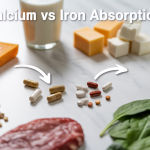Skipping your evening brushing routine does more than leave you with morning breath—it can actually put your heart at risk. This guide is for anyone who’s ever wondered whether that bedtime oral care really matters for their overall health, especially their cardiovascular system.
When you don’t brush before bed, harmful bacteria multiply in your mouth throughout the night. These bacteria don’t just stay put—they can enter your bloodstream and travel straight to your heart, creating inflammation that affects how well your heart works.
We’ll explore how oral bacteria create immediate changes in your cardiovascular system within hours of skipping your nighttime routine. You’ll also discover the long-term heart problems that develop when poor evening dental habits become a pattern, including how gum disease directly damages heart function over time.
The Hidden Connection Between Oral Bacteria and Cardiovascular Health
How harmful bacteria multiply in your mouth overnight
While you sleep, your mouth becomes a breeding ground for harmful bacteria. Saliva production drops significantly during nighttime hours, reducing your mouth’s natural defense system. This creates the perfect environment for bacteria like Streptococcus mutans and Porphyromonas gingivalis to flourish.
These bacteria feed on food particles and sugars left behind from your day, multiplying rapidly in the warm, moist environment of your mouth. Within just 8 hours, bacterial colonies can increase exponentially, forming sticky biofilms called plaque. This plaque doesn’t just stay put – it releases toxins and inflammatory compounds that irritate your gums and create entry points into your bloodstream.
The most concerning bacteria are anaerobic species that thrive in low-oxygen environments, like the spaces between your teeth and along your gum line. These microorganisms produce harmful byproducts including hydrogen sulfide and volatile sulfur compounds that not only cause bad breath but also trigger inflammatory responses throughout your body.
The pathway from gums to bloodstream
Your gums contain an extensive network of tiny blood vessels that sit just beneath the surface. When bacteria accumulate along the gum line, they cause inflammation and swelling, making these blood vessels more permeable. This creates direct pathways for bacteria and their toxins to enter your bloodstream.
Once bacteria breach the gum barrier, they travel through your circulatory system within minutes. Your immune system immediately recognizes these invaders and launches an inflammatory response, sending white blood cells to attack the bacteria. While this response is protective in the short term, chronic exposure to oral bacteria creates persistent low-grade inflammation throughout your body.
Research shows that specific oral bacteria, particularly P. gingivalis, can actually invade and survive inside arterial walls. These bacteria carry unique enzymes that help them evade immune responses and establish colonies in cardiovascular tissues. They can also trigger the formation of foam cells, which are early markers of atherosclerotic plaque formation.
Why evening brushing creates a protective barrier
Evening brushing serves as your primary defense against overnight bacterial multiplication. When you brush before bed, you physically remove food particles and disrupt bacterial colonies before they can establish themselves for the night.
The fluoride in toothpaste creates a protective coating on your teeth that continues working while you sleep. This coating makes it harder for bacteria to adhere to tooth surfaces and helps neutralize the acids they produce. Brushing also stimulates blood flow to your gums, strengthening their natural barrier function.
Timing matters significantly. Brushing within an hour of bedtime provides maximum protection because it removes the day’s bacterial buildup right before the vulnerable overnight period. This simple habit can reduce bacterial populations by up to 70% and keep inflammation markers significantly lower.
Scientific evidence linking poor oral hygiene to heart disease
Multiple large-scale studies have established strong connections between oral health and cardiovascular disease. The American Heart Association recognizes periodontal disease as an independent risk factor for heart disease, similar to smoking or high cholesterol.
Research from Harvard Medical School followed over 60,000 people for 16 years and found that those with severe gum disease had a 28% higher risk of heart attack. Another landmark study published in the Journal of Periodontology showed that people who brushed their teeth less than twice daily had a three times higher risk of heart disease.
| Study | Participants | Key Finding |
|---|---|---|
| Harvard Health Study | 60,000+ people | 28% higher heart attack risk with severe gum disease |
| Korean National Health Study | 247,696 people | 9% reduction in heart disease risk with regular brushing |
| ARIC Study | 15,792 people | Strong correlation between missing teeth and coronary artery disease |
Laboratory studies have also detected oral bacteria in atherosclerotic plaques removed from heart patients during surgery. These findings provide direct evidence that the same bacteria living in your mouth can travel to and colonize your heart’s blood vessels, contributing to the development of heart disease.
Immediate Effects of Skipping Your Nighttime Oral Care Routine
Plaque Buildup Accelerates During Sleep Hours
Your mouth becomes a bacterial playground the moment you close your eyes for the night. During sleep, saliva production drops dramatically—sometimes by as much as 90%—leaving your teeth vulnerable to bacterial attack. This natural decrease in saliva creates the perfect storm for plaque formation since saliva normally acts as your mouth’s natural defense system, washing away food particles and neutralizing acids.
Without the mechanical action of speaking, chewing, or swallowing that happens during waking hours, bacteria have uninterrupted time to multiply and form sticky biofilms on your teeth. These biofilms, commonly known as plaque, can double in thickness overnight when proper brushing is skipped. The bacteria feast on any remaining food particles and sugars in your mouth, producing acids that begin attacking tooth enamel within minutes.
Sleep also reduces your body’s immune response in the oral cavity, making it easier for harmful bacteria like Streptococcus mutans and Porphyromonas gingivalis to establish colonies. These bacterial communities communicate through a process called quorum sensing, allowing them to coordinate their attack on your oral tissues more effectively during the quiet nighttime hours.
Gum Inflammation Increases Overnight
Your gums pay the immediate price when evening brushing gets skipped. The bacterial toxins produced by plaque trigger an inflammatory response that becomes particularly pronounced during sleep. This inflammation, known as gingivitis in its early stages, can develop remarkably quickly—often showing signs within just a few nights of inconsistent oral care.
During sleep, blood flow to the gums changes, and the lack of movement means that inflammatory compounds can accumulate more easily around the gum line. The body’s natural healing processes slow down at night, making it harder for your immune system to fight off the bacterial invasion happening in your mouth.
Red, swollen gums in the morning aren’t just a cosmetic concern—they’re your body’s cry for help. The inflammation releases cytokines and other inflammatory markers that don’t stay confined to your mouth. These molecules enter your bloodstream and can trigger systemic inflammation throughout your body, creating a cascade effect that reaches far beyond your oral cavity.
Bacterial Toxins Enter Your Bloodstream Faster
The real danger begins when harmful oral bacteria and their toxic byproducts find their way into your cardiovascular system. Inflamed and bleeding gums create tiny entry points that act like doorways for bacteria to access your bloodstream directly. This process, called bacteremia, can happen within minutes of bacterial overgrowth in your mouth.
Research shows that certain oral bacteria, particularly those associated with gum disease, can be found in arterial plaques and heart tissue. When you skip brushing, you’re essentially rolling out the red carpet for these bacteria to travel through your body via your bloodstream. The bacteria don’t just pass through harmlessly—they can actually adhere to damaged areas in your blood vessels and contribute to the formation of arterial plaques.
Your heart works harder when dealing with this bacterial invasion. The inflammatory response triggered by oral bacteria forces your cardiovascular system into a state of constant low-grade inflammation, putting additional stress on your heart muscle and blood vessels. This chronic inflammatory state has been linked to increased risk of heart attacks, strokes, and other cardiovascular events, making that skipped evening brush far more consequential than most people realize.
Long-Term Cardiovascular Consequences of Poor Evening Dental Habits
Increased Risk of Atherosclerosis Development
When you consistently skip evening brushing, oral bacteria produce toxins that enter your bloodstream and trigger a cascade of inflammatory responses. This chronic inflammation accelerates the formation of arterial plaques, the hallmark of atherosclerosis. The bacteria Streptococcus sanguis and Porphyromonas gingivalis have been found embedded within arterial walls, directly contributing to plaque buildup.
Your arteries become increasingly narrow as these inflammatory processes continue night after night. What starts as minor bacterial infiltration evolves into significant arterial damage over months and years. The endothelial cells lining your blood vessels suffer continuous assault from bacterial toxins, losing their ability to regulate blood flow effectively.
Research shows people with severe gum disease face a 70% higher risk of developing coronary artery disease compared to those maintaining excellent oral hygiene. The connection becomes even more pronounced when poor evening habits allow bacterial colonies to flourish during sleep’s extended period without saliva’s natural cleansing action.
Higher Likelihood of Blood Clots Formation
Poor evening dental habits create the perfect storm for dangerous clot formation. Oral bacteria release inflammatory mediators that increase platelet aggregation, making your blood stickier and more prone to clumping. This process doesn’t happen overnight but builds progressively as bacterial populations expand in your mouth.
The inflammatory proteins released by infected gums directly affect your blood’s coagulation system. C-reactive protein levels spike, while fibrinogen production increases, both key factors in clot formation. Your body essentially remains in a constant state of inflammatory alert.
Studies reveal that people with advanced periodontal disease show significantly elevated levels of von Willebrand factor, a protein crucial in blood clotting. During sleep, when saliva production decreases and bacterial activity peaks, these clotting factors reach their highest concentrations, creating windows of maximum risk.
Elevated Blood Pressure from Chronic Inflammation
Skipping evening brushing sets off a domino effect of inflammatory responses that directly impact your cardiovascular system’s ability to regulate blood pressure. The bacterial endotoxins from your mouth trigger the release of inflammatory cytokines, which damage the delicate lining of your blood vessels and impair their natural ability to dilate and contract properly.
Your sympathetic nervous system becomes hyperactive in response to chronic oral inflammation, leading to sustained increases in heart rate and blood pressure. This creates a vicious cycle where elevated blood pressure further damages arterial walls, making them more susceptible to bacterial colonization and additional inflammation.
Clinical studies demonstrate that treating severe gum disease can reduce systolic blood pressure by an average of 13 mmHg within just six months. The relationship works in reverse too – maintaining excellent evening oral hygiene helps preserve the flexibility and responsiveness of your arterial system, keeping blood pressure within healthy ranges.
Greater Chance of Heart Attack and Stroke
The cumulative effects of poor evening dental habits significantly amplify your risk of experiencing major cardiovascular events. Oral bacteria don’t just stay in your mouth – they travel through your bloodstream and can directly infect heart tissue, potentially causing bacterial endocarditis or contributing to the rupture of unstable arterial plaques.
Your risk multiplies when considering how poor oral health affects multiple cardiovascular risk factors simultaneously. Chronic inflammation raises cholesterol levels, bacterial toxins promote irregular heart rhythms, and ongoing immune responses strain your heart’s ability to function optimally.
Population studies consistently show that people with severe periodontal disease face nearly double the risk of heart attack compared to those with healthy gums. The risk becomes even more pronounced for strokes, with some research indicating up to three times higher likelihood of cerebrovascular events in individuals with untreated gum disease.
The timing of your oral care routine matters tremendously because nighttime bacterial growth creates sustained inflammatory burdens that persist for hours while you sleep, giving these harmful processes maximum opportunity to affect your cardiovascular system.
How Gum Disease Directly Impacts Your Heart Function
Inflammatory Proteins Damage Arterial Walls
When gum disease takes hold in your mouth, it triggers a cascade of inflammatory responses that extend far beyond your teeth and gums. The bacteria causing periodontal disease release harmful toxins that enter your bloodstream through inflamed gum tissue. Your immune system responds by producing inflammatory proteins called cytokines, including C-reactive protein (CRP) and interleukin-6.
These inflammatory markers travel through your circulatory system and directly attack the inner walls of your arteries. The arterial lining, called the endothelium, becomes damaged and begins to swell. This damage creates rough patches where cholesterol and other fatty deposits can easily stick, forming dangerous plaques that narrow your arteries and restrict blood flow to your heart.
Research shows that people with severe gum disease have CRP levels that are two to three times higher than those with healthy gums. This chronic inflammation doesn’t just affect your arteries temporarily – it creates ongoing damage that accelerates atherosclerosis, the hardening and narrowing of arteries that leads to heart attacks and strokes.
Bacterial Infections Weaken Heart Muscle Tissue
The same bacteria that destroy your gum tissue can actually travel through your bloodstream and infect your heart directly. Streptococcus and other oral pathogens have been found living in heart valve tissue and cardiac muscle samples from patients with heart disease. These bacterial invaders don’t just pass through your heart – they can set up permanent residence.
When bacteria colonize heart tissue, they trigger localized infections that weaken the heart muscle itself. This condition, called bacterial endocarditis, causes the heart’s inner lining and valves to become inflamed and damaged. The infected tissue becomes less efficient at pumping blood, and the heart has to work harder to maintain proper circulation throughout your body.
Even without developing full-blown endocarditis, the presence of oral bacteria in heart tissue creates microscopic areas of infection that gradually weaken the cardiac muscle. Your heart begins to struggle with its basic function of contracting and relaxing rhythmically, leading to decreased pumping efficiency and potential heart failure over time.
Reduced Blood Flow Affects Heart Rhythm
Poor oral hygiene doesn’t just damage your arteries and heart muscle – it also disrupts your heart’s electrical system. When plaque buildup from chronic inflammation narrows the coronary arteries that supply blood to your heart, the cardiac muscle receives less oxygen and nutrients than it needs to function properly.
This reduced blood flow particularly affects the heart’s natural pacemaker cells, which rely on a steady supply of oxygen to maintain regular electrical impulses. When these cells don’t get enough blood, they can misfire or fail to fire at all, causing irregular heartbeats called arrhythmias.
The inflammatory proteins released during gum disease also interfere with the heart’s electrical conduction system. They can damage the specialized pathways that carry electrical signals throughout the heart muscle, leading to conditions like atrial fibrillation, where the upper chambers of the heart quiver instead of beating normally.
| Heart Rhythm Disorder | Connection to Gum Disease | Risk Level |
|---|---|---|
| Atrial Fibrillation | 2x higher risk with severe periodontal disease | High |
| Premature Ventricular Contractions | Increased frequency with oral inflammation | Moderate |
| Heart Block | Bacterial damage to conduction pathways | Moderate |
Simple Evening Brushing Techniques That Protect Your Heart
Optimal brushing duration for maximum bacteria removal
Most people rush through their evening brushing routine, spending barely 30 seconds cleaning their teeth. This quick scrub barely makes a dent in the bacterial buildup that’s been accumulating throughout the day. Your mouth needs at least two full minutes of thorough brushing to effectively disrupt bacterial colonies and remove the sticky plaque film that harbors harmful microorganisms.
The two-minute rule isn’t arbitrary – dental research shows that anything less leaves dangerous bacteria intact, particularly in hard-to-reach areas between teeth and along the gum line. These surviving bacteria multiply rapidly overnight when saliva production decreases, creating the perfect storm for cardiovascular-damaging toxins to enter your bloodstream.
Break your brushing into four 30-second quadrants: upper right, upper left, lower right, and lower left. This systematic approach ensures every surface gets adequate attention. Use gentle, circular motions rather than aggressive back-and-forth scrubbing, which can damage gums and create entry points for bacteria.
Choosing antibacterial toothpaste for enhanced protection
Regular fluoride toothpaste does a decent job cleaning teeth, but antibacterial formulations provide an extra layer of protection against the specific bacteria linked to heart disease. Look for toothpastes containing triclosan, stannous fluoride, or zinc compounds – these ingredients actively target the gram-negative bacteria that produce endotoxins harmful to cardiovascular health.
Stannous fluoride stands out as particularly effective against the bacteria associated with both gum disease and heart problems. Unlike regular sodium fluoride, stannous fluoride continues working long after you’ve finished brushing, providing ongoing bacterial control throughout the night.
| Ingredient | Primary Benefit | Duration of Protection |
|---|---|---|
| Stannous Fluoride | Targets harmful bacteria + cavity prevention | Up to 12 hours |
| Triclosan | Broad-spectrum antibacterial action | 8-10 hours |
| Zinc Compounds | Reduces bacterial growth + fresh breath | 6-8 hours |
Avoid toothpastes with sodium lauryl sulfate (SLS) if you have sensitive gums, as this foaming agent can irritate already inflamed tissue and make bacterial invasion easier.
The importance of flossing before bedtime
Flossing removes bacteria from the 35% of your tooth surfaces that your toothbrush can’t reach. These tight spaces between teeth become bacterial breeding grounds overnight, producing toxins that enter your bloodstream and trigger inflammatory responses in your cardiovascular system.
Evening flossing is particularly critical because bacteria multiply rapidly during sleep when your mouth produces less saliva. The mechanical action of floss physically disrupts bacterial biofilms – those sticky, organized communities of microorganisms that are much harder to eliminate once fully formed.
Start with about 18 inches of floss, wrapping most around your middle fingers and leaving about two inches to work with. Gently slide the floss between teeth using a sawing motion, then curve it into a C-shape around each tooth and slide it under the gum line. This technique removes bacteria from the sulcus – the small pocket where your tooth meets your gum.
Don’t worry if your gums bleed initially. This bleeding often indicates inflammation from bacterial buildup, and consistent flossing typically reduces bleeding within a week or two as gum health improves.
Mouthwash benefits for overnight bacterial control
An antibacterial mouthwash serves as your final defense against overnight bacterial multiplication. While brushing and flossing physically remove bacteria, mouthwash reaches areas you might have missed and continues killing bacteria for hours after use.
Choose alcohol-free formulations to avoid drying out your mouth – a dry mouth creates an even more favorable environment for harmful bacteria. Look for mouthwashes containing cetylpyridinium chloride or essential oils like eucalyptol and menthol, which have proven antibacterial properties.
Rinse for the full recommended time (usually 30-60 seconds) and resist the urge to rinse with water afterward. The active ingredients need time to coat your mouth and continue working overnight.
Creating a consistent evening oral care schedule
Your evening routine should begin at least 30 minutes before bed, giving antibacterial ingredients time to work before you lie down. This timing also prevents the mint flavor from interfering with your sleep.
Start with flossing to loosen bacteria and food particles, then brush for two full minutes, and finish with mouthwash. This sequence maximizes the effectiveness of each step – flossing opens up spaces for your toothbrush to clean, and brushing prepares surfaces for mouthwash penetration.
Set a specific time each night and stick to it. Your mouth’s bacterial populations follow predictable patterns, and consistency helps maintain the bacterial balance that protects both your oral and cardiovascular health. Consider setting a phone reminder until the routine becomes automatic.
Keep your oral care supplies visible and easily accessible. The easier you make it to maintain your routine, the more likely you’ll stick with it long-term, protecting your heart one brush at a time.
Skipping your evening brush might seem harmless, but your heart pays the price. When harmful bacteria build up in your mouth overnight, they don’t stay put—they travel through your bloodstream and trigger inflammation that directly affects your cardiovascular system. The connection between gum disease and heart problems isn’t just a coincidence; it’s a serious health relationship that develops over years of neglecting your nighttime oral care routine.
Your evening brushing routine is actually one of the simplest ways to protect your heart health. Just two minutes with your toothbrush before bed can prevent the bacterial buildup that leads to gum inflammation and cardiovascular complications down the road. Don’t let convenience cost you your heart health—make evening brushing as automatic as locking your front door. Your heart will thank you for this small but powerful daily habit that takes almost no effort but delivers massive long-term benefits.









